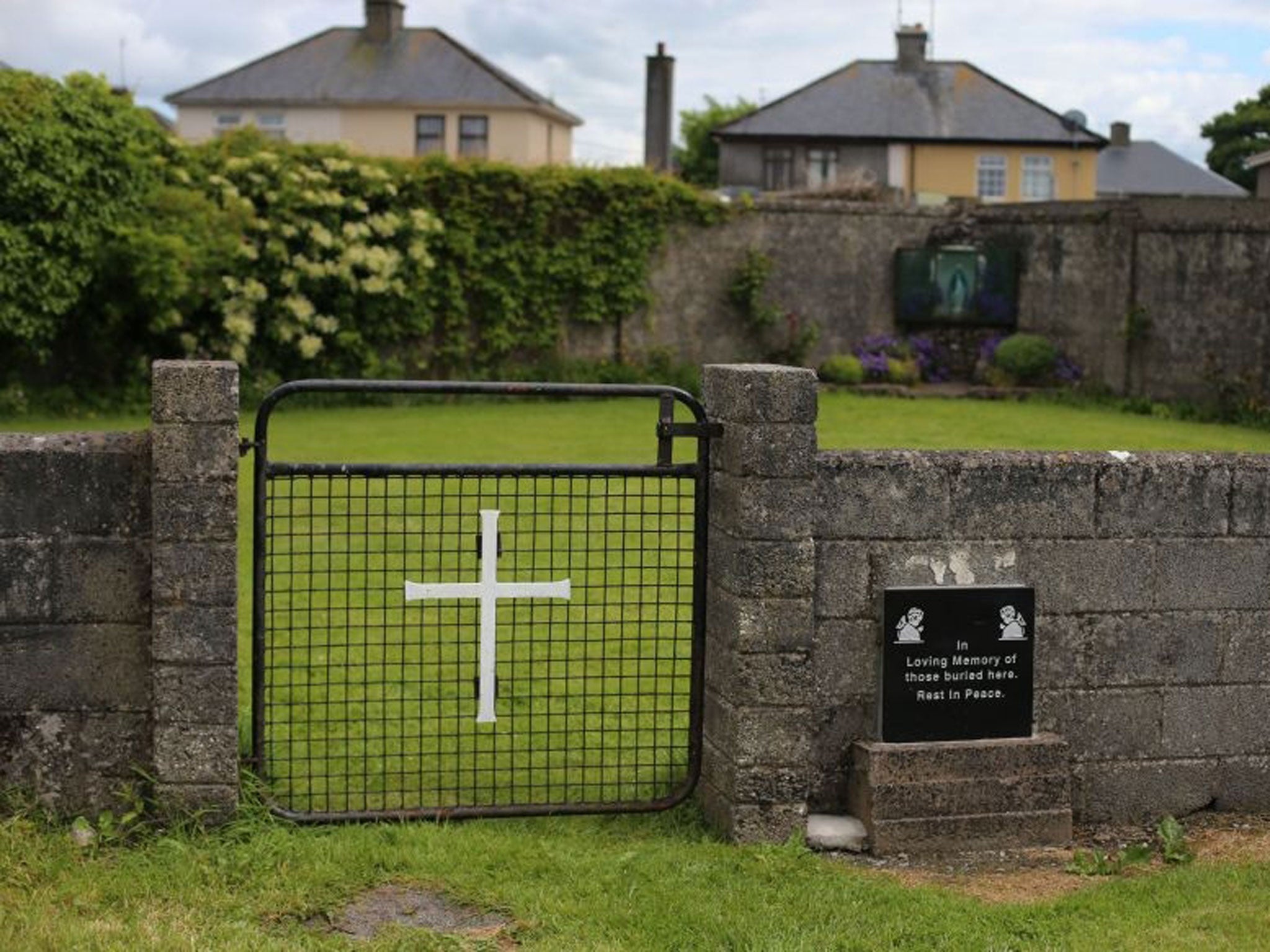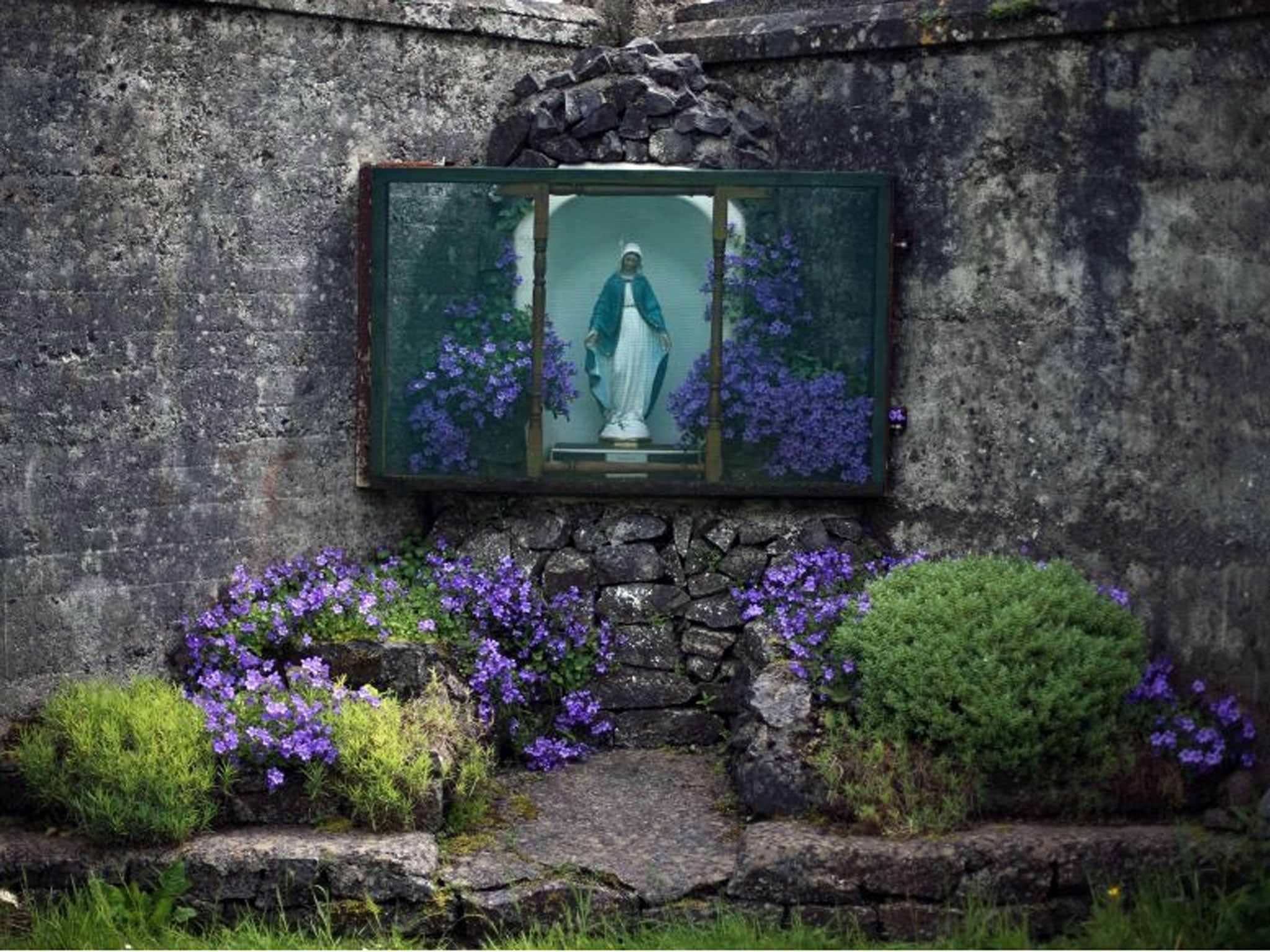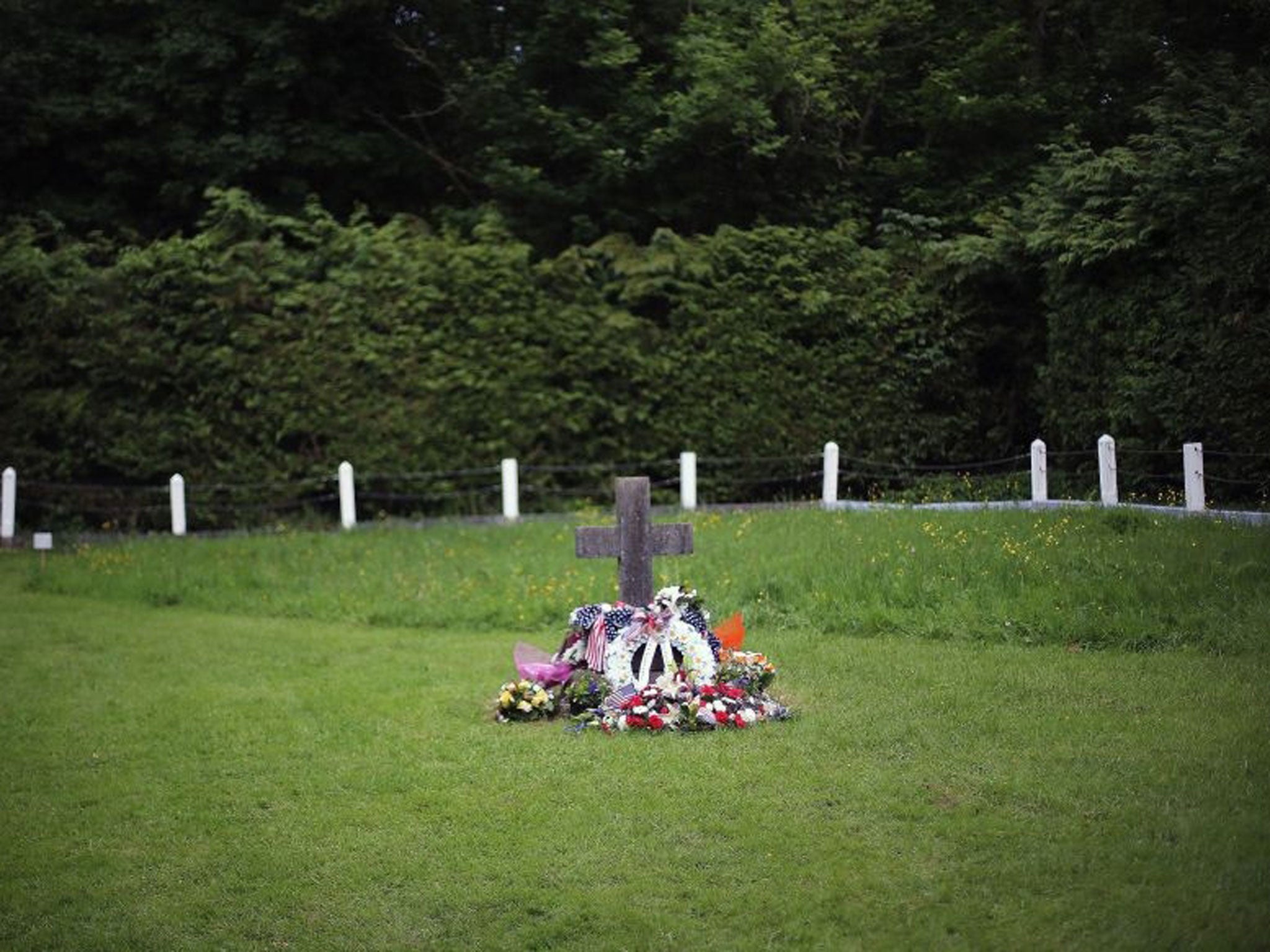Ireland mass graves: Nuns have no records from former home for unmarried mothers
The Sisters of Bon Secours said they were deeply saddened by reports of the burial of almost 800 infants

Your support helps us to tell the story
From reproductive rights to climate change to Big Tech, The Independent is on the ground when the story is developing. Whether it's investigating the financials of Elon Musk's pro-Trump PAC or producing our latest documentary, 'The A Word', which shines a light on the American women fighting for reproductive rights, we know how important it is to parse out the facts from the messaging.
At such a critical moment in US history, we need reporters on the ground. Your donation allows us to keep sending journalists to speak to both sides of the story.
The Independent is trusted by Americans across the entire political spectrum. And unlike many other quality news outlets, we choose not to lock Americans out of our reporting and analysis with paywalls. We believe quality journalism should be available to everyone, paid for by those who can afford it.
Your support makes all the difference.Nuns in charge of an institute for single mothers where hundreds of babies were buried in a septic tank have said they no longer hold records from the home.
The Mother and Baby Home in Tuam was one of 10 similar homes across Ireland believed to hold the remains of another 3,200 babies and infants.
Archbishop of Dublin Diarmuid Martin has called for the religious orders which ran these institutes to release full details of all the people they took in.
But the Sisters of Bon Secours, which operated the institute in Tuam, Co Galway, said it handed its records to the state after it closed.
They added in a statement that they were shocked and deeply saddened by reports of the burial of 798 dead infants from 1925 to 1961.
“In 1961 the home was closed. All records were returned to the local authority, and would now be within the Health Service Executive, Co Galway,” the order said.
The nuns said they are committed to engaging with Catherine Corless, the historian who identified the extent of the burials, and the Tuam graveyard committee, which is seeking a permanent memorial at the site.
The order also said it welcomes the Government review of records of what happened in Tuam.

Amid growing national and international disgust at the details from the town, the Archbishop said the practice of the mass burials was sickening.
“The Gospel message is that authentic faith is measured by how we treat children who represent Jesus Christ,” he said.
“Every effort should be made, by all parties who were involved in setting up, running and overseeing these homes, to ensure the mothers and children who were sent there have an accurate account as possible of their own life stories.”
All that remains of the site in the town is a grassy area on the edge of a housing estate near where the home stood and where the concrete septic tank is understood to lie.
Children's Minister Charlie Flanagan said the alleged practice in Tuam is almost almost too graphic and horrible to believe.
“It is fully recognised by me and my Government colleagues that we need to establish the truth,” he said.
The Government review of mother and baby homes will not be restricted to Tuam and includes officials in departments of children, justice, health, education and environment.
“The Government is committed to ensuring that the most appropriate action is taken to ensure that the concerns in regards to these deeply tragic and disturbing past events can be addressed,” Mr Flanagan said.
The minister also said mother and baby homes were not unique to Ireland, nor was the manner in which the country dealt with its most vulnerable citizens entirely unique.
He said the practice in the 20th century reflects a brutally, unforgiving response by society, religious and state institutions and, in many cases, families to young women and children when they were in most need and most vulnerable.
Other mother and baby homes with little angel's plots include three run by the Sacred Heart Sisters at Sean Ross Abbey, Tipperary - where the story of Philomena Lee began - Bessborough, Co Cork, and Castlepollard, Co Westmeath.

The records of the deaths - even if the birth had not been registered - were kept in ledgers under the 1934 Maternity Act and are now held by the state in private record offices in Galway, Waterford, Cork and Donegal.
About 35,000 single women are believed to have spent time in one of 10 homes for pregnant women.
Another home where the scandal of unmarked graves was uncovered is the Protestant Bethany Home in Dublin, which was found to have had 222 infants die before being secretly buried.
They have since been re-interred and a memorial placed on the new plot in Mount Jerome Cemetery, Harold's Cross.
A spokesman for the Bethany Survivors Group said: “It is imperative that the Government takes action to face up to this shocking episode in the history of the State.
”The issue is gathering a momentum and becoming unstoppable.
“Bethany Home Survivors support the current inquiry call and renew the demand for redress and compensation, for survivors of all so-called mother and baby homes.”
The mother and baby homes were excluded from a redress scheme in 2005.
Archbishop Martin said he hopes a full bodied inquiry will be set up to examine all aspects of life in the homes and also how adoptions were organised.
He said the story of the homes was not one from another time or era but the personal story of hundreds of men and women alive today, living in Ireland and abroad.
Archbishop Martin said he had ordered an audit of diocesan files connected to mother and baby homes several months ago.
Hundreds of documents have been collated and will be made given to any public inquiry that is set up but no information of mass graves has emerged.
PA
Join our commenting forum
Join thought-provoking conversations, follow other Independent readers and see their replies
Comments